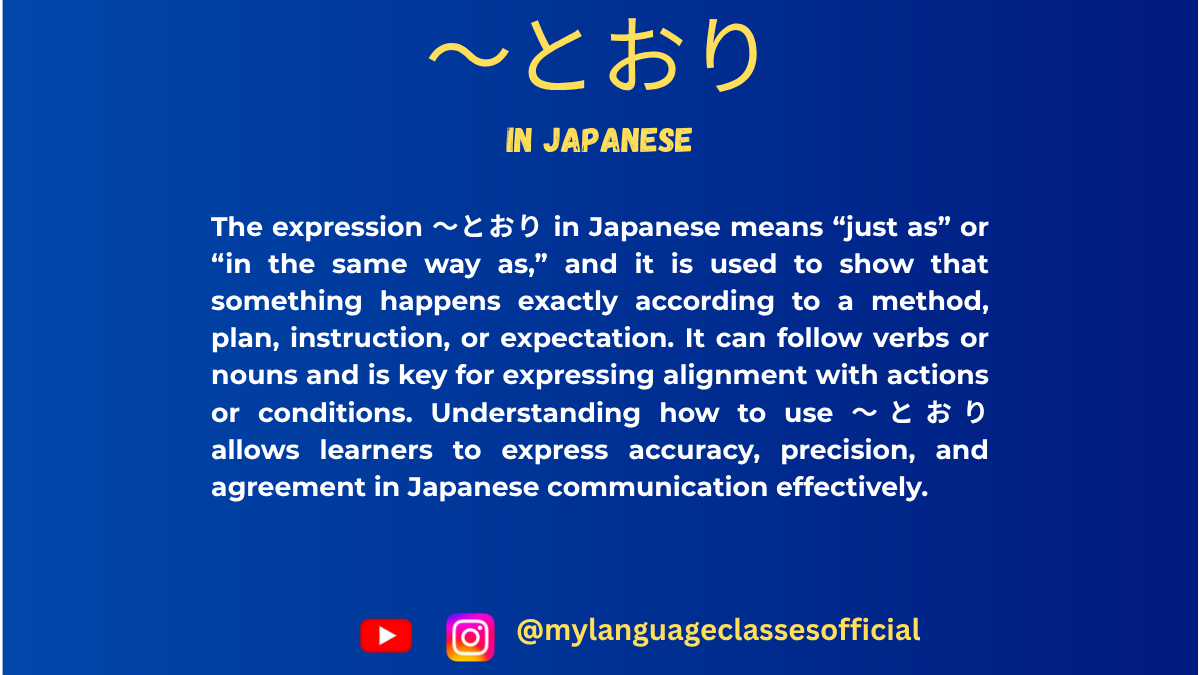Your cart is currently empty!
Tag: toori sentence structure in japanese

Using 〜とおり in Japanese
Understanding「〜とおり」 in Japanese
If you’re learning Japanese, you’ve probably come across the phrase 「〜とおり」 at some point. This grammar pattern is incredibly useful for expressing actions, instructions, and events happening “as expected,” “just as,” or “in the same way”… Read more

